Keyword research might seem overwhelming, but it is crucial to ensure your marketing strategy hits the mark. While it might be tempting to rely on instinct, the reality is that thorough keyword research gives you hard data on what people are actually searching for.
In this simple guide, we will explain how to find the right keywords for your business, covering:
- Why keyword research matters and how it helps your marketing.
- Step-by-step guidance on easy and effective keyword research tools.
- How to uncover competitor, question-based, and related keywords.
1. What is Keyword Marketing?
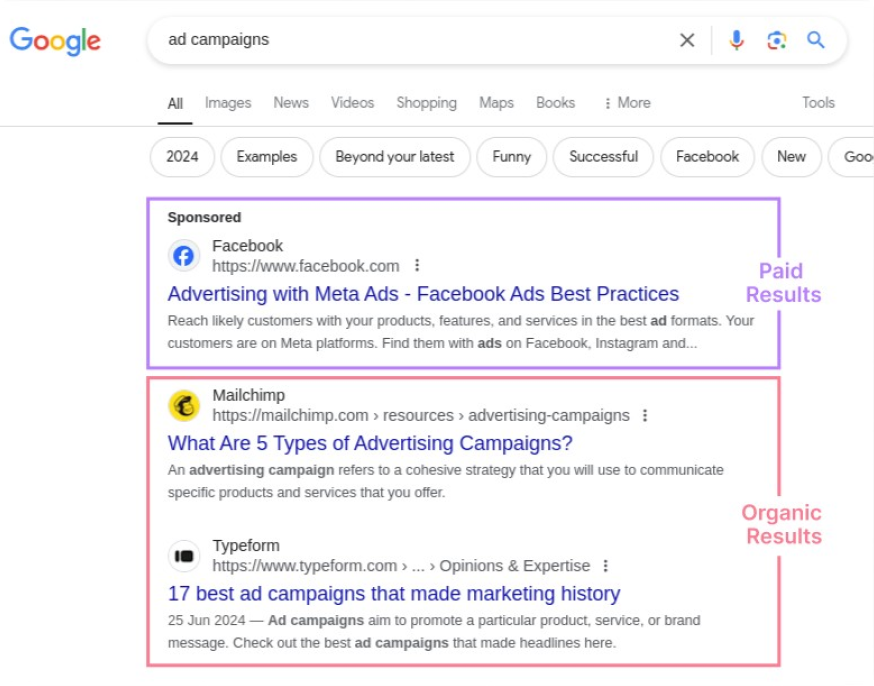
2. Why Are Keywords Important in Marketing?
- Connect with Customers: Keywords link your business to people searching for related products or services.
- Improve Search Visibility: Using the right keywords helps your website rank higher in search engine results.
- Targeted Traffic: Keywords attract visitors who are specifically interested in what you offer.
- Understand Customer Intent: Keywords reveal what your customers are searching for and their interests.
- Boost Ad Effectiveness: In paid advertising, keywords ensure your ads reach the right audience.
- Increase Conversion Chances: Relevant keywords attract potential customers who are more likely to buy from you.
3. Find and Use Keywords for Effective Advertising
If you are looking to boost conversions or raise brand awareness quickly, running ads can be very effective. However, keep in mind that once you stop your ads, the results may cease as well.
Here is a detailed process to get started:
Find Relevant PPC Keywords
- house cleaning
- residential cleaning near me
- house cleaning services
- cleaning company
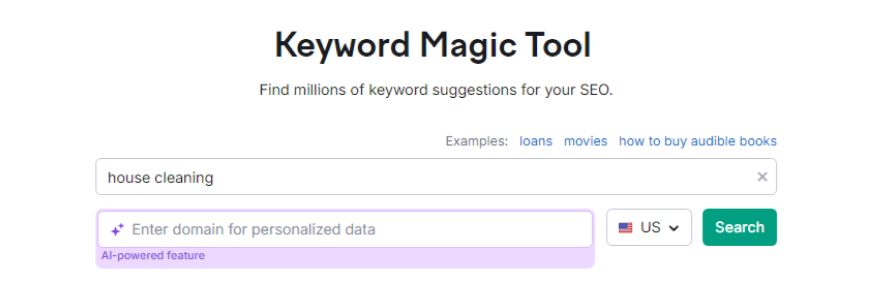
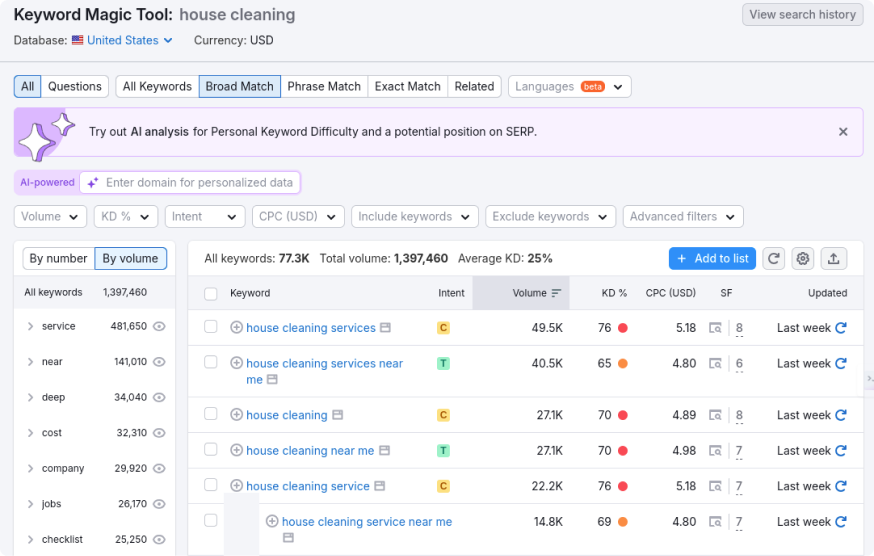
Additional factors to evaluate
- Search Volume: How often is the keyword searched each month? Higher search volume can drive more traffic.
- Cost Per Click (CPC): This is the typical cost that advertisers pay for each click on a PPC advertisement. Choosing keywords with a low cost per click can allow you to get more value out of your budget. But remember that a high cost per click (CPC) also indicates that the phrase is valuable and conversion-prone.
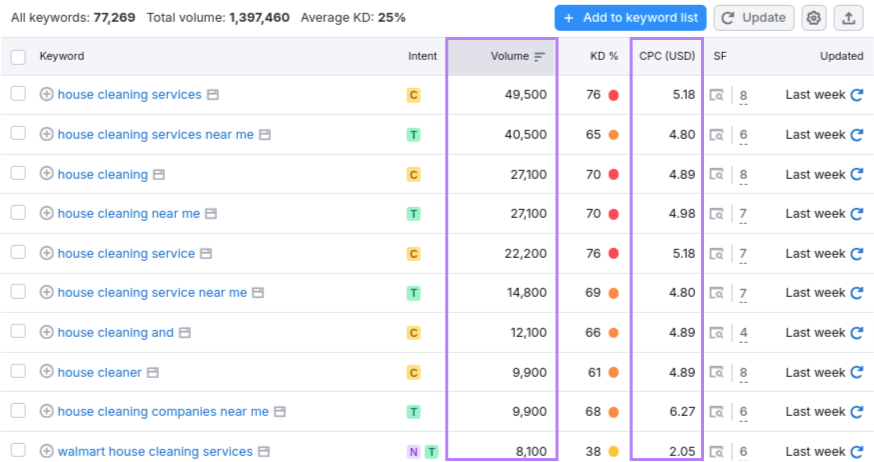


Organize Keywords into Groups
- Best house cleaning service
- Best home cleaning near me
- Cleaning services near me
- House cleaning companies near me
- Home cleaning services near me
To perform keyword grouping, it is essential to first analyze your keywords for common themes, products, audience types, use cases, or user intents. Ensure each group has similar ad copy and landing pages.
Then create initial groups based on these similarities, for this, you can use spreadsheet tools. Then aim for relatively small and focused groups with around 10-20 related keywords each and name them descriptively to align with your ad copy and landing pages.
Craft Effective Ads
Your ad copy should encourage users to click on your search ad. And to achieve that, you will need to write compelling copy that appropriately reflects your offer.
Essential elements include:
- Display Path: The URL shown in the ad, gives users an idea of where they will land.
- Headlines: The prominent text in your ad, should clearly convey your message.
- Description: The main body of the ad, provides more details about your offer and includes additional selling points.
For instance:

Launch and Monitor Your PPC Campaigns
- Conversion Rate: The percentage of clicks that result in conversions.
- CPC: The cost for each click on your ad.
- Click-Through Rate (CTR): The percentage of people who click on your ad after seeing it.
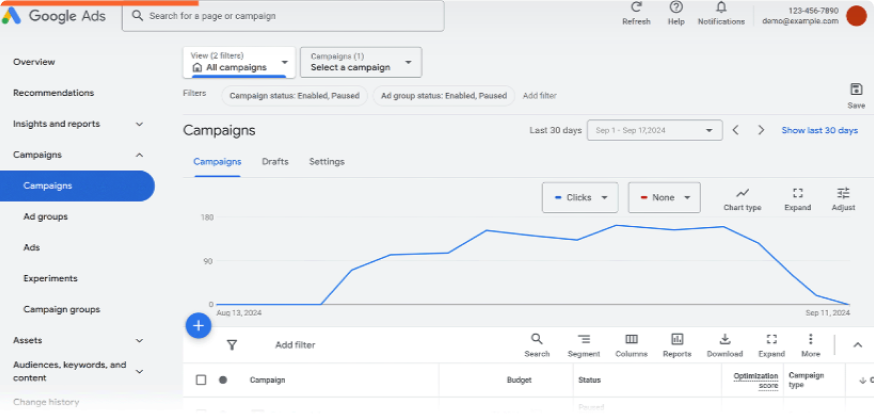
4. How to Find and Use Keywords for SEO
If you are aiming to build a lasting organic presence in search results, SEO is a solid choice. Although it takes time to see results, the benefits can last for months or even years.
Let’s break down the process:
Recognize Relevant SEO Keywords

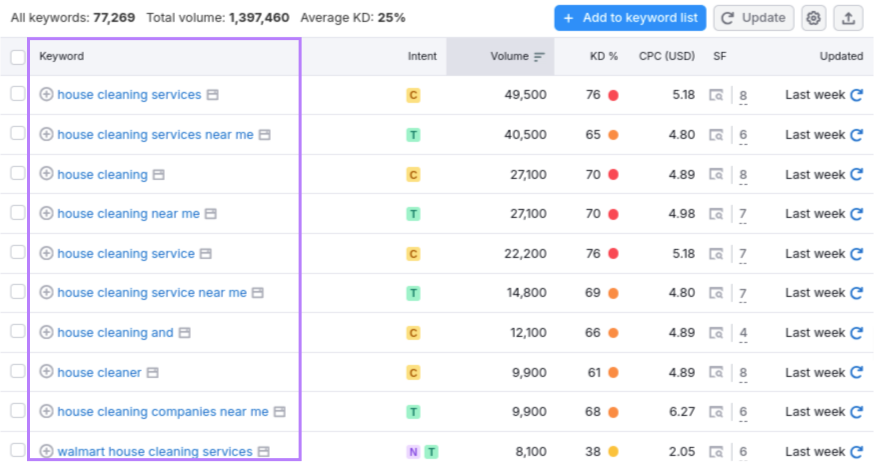
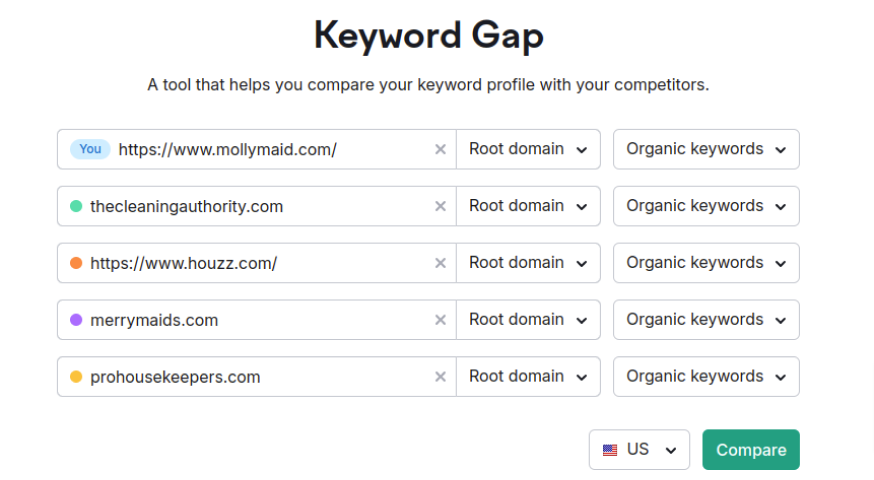
Evaluate and Choose Keywords
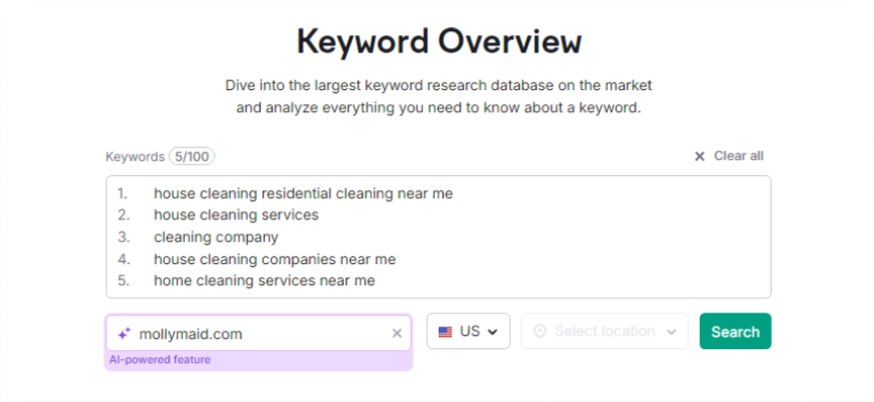

- Relevant Intent: Choose keywords that match the type of content you want to create, whether it is informational or commercial.
- Search Volume: Focus on keywords with a decent number of searches each month. A good benchmark is at least 100 searches.
- Difficulty: Aim for keywords that your site can realistically rank for. Look for those with a low Personal Keyword Difficulty (PKD %) score.
- Trends: Prefer keywords with stable or increasing search volumes.
Create Quality Content
- Satisfies search intent
- Presents information clearly
- Provides a great user experience
Publish and Monitor Your Content
- Keyword Rankings: Your content’s position in search results
- Organic Sessions: Visits from unpaid search results
- Conversions: Actions taken by visitors, such as purchases or form submissions
It might take you several months to see significant results. However, you can use Google Analytics 4 to track organic sessions and conversions, and Semrush’s Position Tracking tool to monitor keyword rankings. Regularly review your keyword performance so that you can gradually increase your rankings.
By following these steps, you can effectively find and use keywords to boost your SEO and achieve better marketing results.
Keyword Marketing FAQs
Anchal Mathur
Digital Marketing Specialist At @Elitedigitallab
Archana Mathur is an accomplished Digital Marketing Specialist with 5+ years of experience. She has worked with a wide range of experts and specializes in crafting data-driven strategies. With her unique approach, she has helped businesses of all sizes boost their online presence and build lasting customer relationships.








